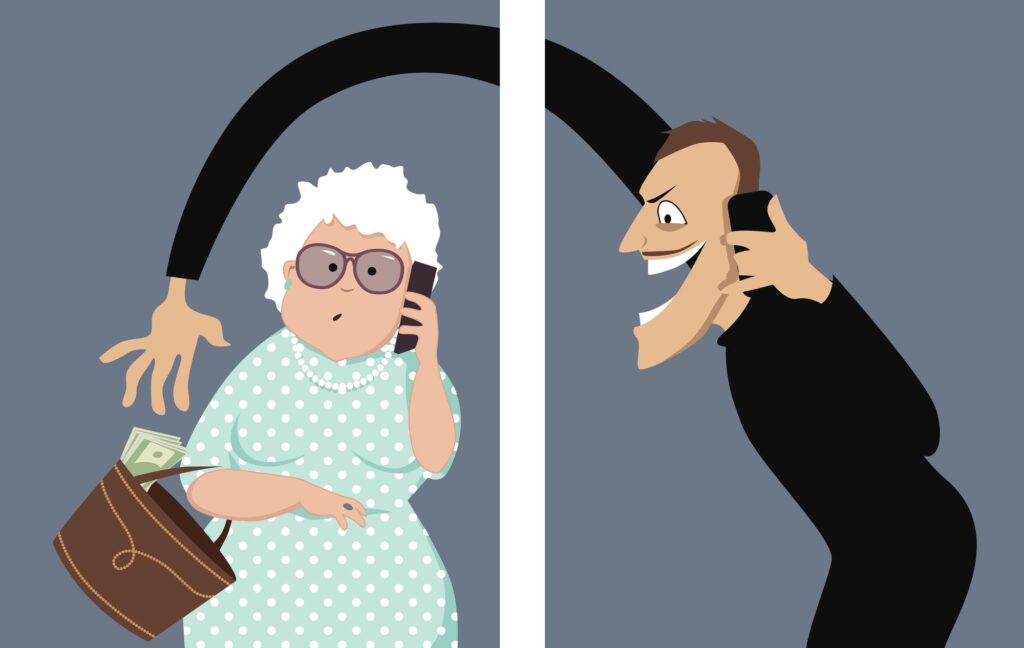Scammers target people of all backgrounds, ages, and income levels by creating believable schemes that may convince one to give them money or personal details.
Scammers will go to great lengths to convince a person that a fortune awaits if one follows their instructions, but there are several ways to avoid such mishaps. You may even be introduced to a second or even third scammer – posing as a banker, TV channel representative, or government official – to ‘help facilitate the legal and financial aspects of the transaction.’
Some of the common scams include:
a) Attempts to Gain Personal Information
Scammers use all kinds of approaches to steal personal details. Once obtained, they can use the stolen identity to commit fraudulent activities.
b) Impersonating Banks/Organizations
Scammers impersonate genuine organizations such as banks/Benazir Income Support Programme (BISP)/ Ehsas Programme, etc. A common fraud technique is that your “ATM has been blocked” and that you should call a number (listed in the message) to get your ATM unblocked.
Another technique used by scammers is to pretend to be representatives of PTA and ask for money in the guise of registration of a mobile device.
c) Threats & Extortion
Scammers try to steal identity or money – including threatening the life of the person they are calling. A popular technique used by scammers is impersonating an Army officer.
d) Cash Transfer/”Sending a code”
Scammers invent convincing and seemingly legitimate reasons to lull the receiver of a message or caller into a false sense of security. For example, a popular technique is to send the receiver a message about transferring money into their EasyPaisa or other e-payment accounts by mistake and to send a certain “code” or “message” back to them.
e) Prize/Lottery Scams
Scammers trick you into giving money or your personal information in order to receive a prize from a lottery or competition that you may have never entered. Such scammers usually impersonate popular TV game show programs.
How to Protect Yourself from Scammers
Protect yourself
Do not open suspicious texts, or click on links or attachments in SMS – ignore and report. Beware of any requests for your details or money. Never send money or give ATM or PIN details, online account details, or copies of personal documents to anyone you don’t know or trust.
Furthermore, you should warn your friends and family about scams. If you are not sure that you’re being scammed, don’t transfer any funds. Scammers will keep asking for more money until you stop.
If you have sent money or shared your banking details with a scammer, contact your bank and police immediately. They may be able to stop a transaction, or close your account if the scammer has your account details.
Report scams to the authorities
First, report the scam number to your service provider (Jazz, Zong, Telenor, Ufone & PTCL) for blocking of suspected number. If no response is received from the service provider, you can also report the number to PTA for blocking by dialing 0800-55055 or visiting complaint.pta.gov.pk/registercomplaint.
PTA will block such numbers and mobile device IMEI. Repeat offenses from the same person (using a different number) will result in the blacklisting of such CNICs for the issuance of new SIMs/connections.
If a financial/banking fraud has occurred, contact State Bank of Pakistan: cpd.helpdesk@sbp.org.pk.
For further investigation, contact FIA helpline: 051 9106384
Courtesy: ProPakistani

